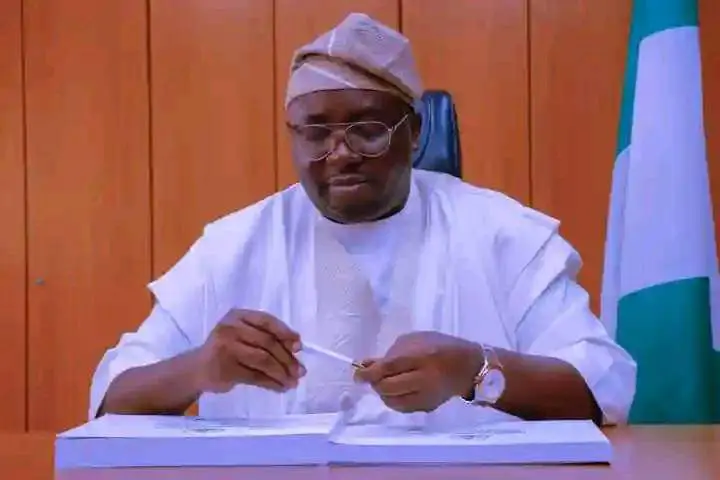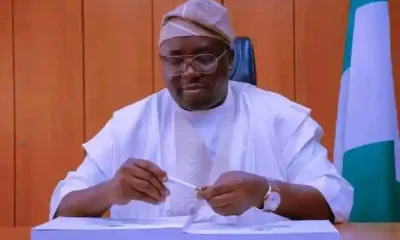BUSINESS
National Grid: Electricity Available Slumps as Minister Adelabu Focuses on Oyo Governorship

The reliability of Nigeria’s national power infrastructure has again come under intense scrutiny following a significant drop in available electricity, a situation exacerbated by the perceived distraction of the Minister of Power, Adebayo Adelabu, declaring his interest in state politics. The crisis highlights the nation’s ongoing struggle to provide stable electricity to its massive population.
Dependable NG reports that the amount of electricity available on Nigeria’s national grid has sharply dropped to 5,128.50 megawatts (MW) as of October 2025. This critical figure, released in recent national grid performance data by the Nigerian Independent System Operator, indicates a worrisome downward trend in power generation.
The figure represents a 12.32 per cent drop when compared to the peak generation of 5,801.84 MW recorded earlier this year on March 4th, 2025. This regression in output signifies that power supply has not improved over the last several months for an estimated 250 million Nigerians who depend on the grid for homes and businesses. This sustained deficit in generation continues to throttle economic activity and negatively impact the quality of life across the country, forcing countless businesses to rely heavily on expensive, polluting alternative power sources like diesel generators.
The persistent fragility of the national grid was further underscored by a massive system failure that occurred on September 10th, 2025, when the entire grid collapsed. This was just one of several grid disturbances recorded in the year, revealing the deep structural challenges facing the Transmission Company of Nigeria (TCN). Although the system was reportedly restored hours later, the incident served as a stark reminder of the vulnerability of the country’s power infrastructure. Such recurrent collapses frequently plunge all connected states into darkness, leading to enormous operational losses for industries and small businesses alike, and severely disrupting daily life, including essential services like healthcare and banking.
The nation’s power sector continues to be plagued by multi-faceted challenges. These include chronic gas supply shortages to key thermal generation plants, persistent infrastructure vandalism targeting transmission lines and towers, and the systemic inability of Distribution Companies (DisCos) to remit full payments for power received. These sector-wide issues contribute directly to the volatile and insufficient nature of the power supply, making it difficult for the nation to meet its industrial and domestic energy demands.
As the country continues to grapple with this severe and epileptic power supply, the current Minister of Power, Adebayo Adelabu, has recently drawn considerable criticism after making a high-profile political move. Mr. Adelabu, a former Deputy Governor of the Central Bank of Nigeria, officially declared his intention to contest the Oyo State governorship election in 2027. This decision to focus on seeking a new political office while the crucial power sector remains mired in crisis has raised concerns among energy industry experts, civil society organizations, and the general public regarding the government’s immediate commitment to achieving power sector stability before the next electoral cycle. The immediate challenge for the Minister and the entire power ministry remains the urgent need to stabilize generation, fix the dilapidated transmission network, and ensure the national grid can reliably serve the needs of Africa’s most populous nation, a prerequisite for any meaningful economic growth.


